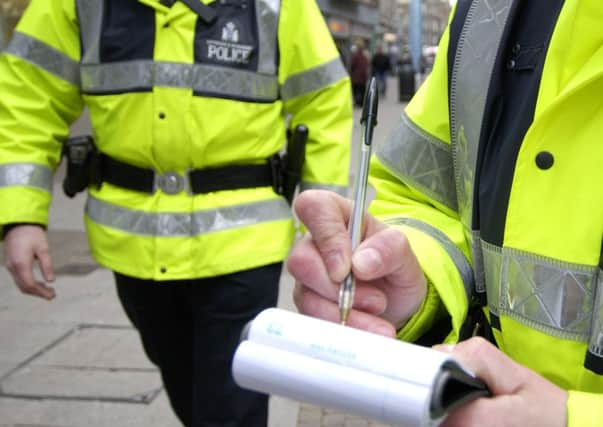Police ‘bullying suspects to drop lawyers’


Officers are now facing calls from senior legal figures to record or film every suspected criminal from the moment they enter police stations, not just during interviews.
The concerns follow a hearing at the Criminal Court of Appeal in Edinburgh last week, in which Lord Philip ruled a teenager had been “bullied” by officers.
Advertisement
Hide AdAdvertisement
Hide AdRoss Paul waived his right to consult a solicitor before being interviewed at Dumbarton police station in May 2012. He was 17 and facing a charge of assault to severe injury.
During the interview, which was recorded, Mr Paul repeatedly asked for a private consultation with a lawyer and was initially refused.
The Criminal Court of Appeal heard that officers used a “bullying and hostile approach” in the hope of “breaking his will” and extracting statements from him of an “incriminating nature”.
Lord Philip said: “It is not in dispute that the questioning fell within the description of interrogation … (of) improper forms of questioning tainted with an element of bullying or pressure designed to break the will of the suspect or to force from him a confession against his will.”
The interview was considered inadmissible and Mr Paul won his appeal.
Lawyers fear that the high number of suspects who waive their right to speak to a lawyer indicates that bullying may be widespread. Police have to document whether a suspect has waived his or her right to speak to a lawyer before interview, but the process does not have to be recorded or filmed.
Mark Harrower, president of the Edinburgh Bar Association, said: “Even in this day and age, many interviews are recorded in notebook form which depends on everything being written down.
“With the best will in the world, it is unlikely that every word uttered in such an interview will be recorded.
Advertisement
Hide AdAdvertisement
Hide Ad“The best way is to record on video. For some reason, uniformed officers rarely record interviews on video.
“Nowadays, all uniformed officers carry sophisticated handsets which can take pictures and some officers, notably the football unit, wear body cameras – why can’t they record interviews with them if there is nothing else?”
The Supreme Court upheld an appeal by Peter Cadder in 2010, finding that suspects must be given access to legal advice before police questioning. Mr Cadder had been found guilty in 2009 of assault after an incident in Glasgow in May 2007. The Supreme Court ruled his human rights had been infringed as he was interviewed by police without a solicitor present.
That verdict triggered an upheaval in the criminal justice system, leading to emergency legislation, a series of reviews and, most recently, the debate about the abolition of the requirement for corroboration.
However, MSPs fear this verdict suggests police have not learned the lessons of Cadder.
John Finnie, Independent MSP and a former police officer, said: “I understood the ground-breaking Cadder case – which allowed an accused access to a solicitor – would have avoided issues like this, hopefully one-off case, arising.
“Perhaps the time is right to review tape-recording arrangements to avoid any such accusations of oppressive conduct or, better still, require all interviews to be video recorded.
“With concerted moves continuing to bring about the abolition of the corroboration rule, it’s more important than ever that police procedures, and the necessary protections for suspects and accused, are robust.”
Advertisement
Hide AdAdvertisement
Hide AdAlison McInnes MSP, Scottish Liberal Democrat justice spokeswoman, added: “It is in no-one’s interests for police officers to try to circumvent that, or to cajole or bully a suspect into waiving their rights.
“I find myself questioning how situations like this can still arise, and urge Police Scotland to investigate the particular circumstances of this case.
“Cases like this undermine trust in the system and the onus now is on Police Scotland to demonstrate that they have robust monitoring in place to ensure that the law is being complied with fully.”
Graeme Pearson MSP, another former police officer and now Scottish Labour’s justice spokesman, said: “I simply can’t understand why repeated requests for legal advice would have been ignored and this case raises my concerns about how Police Scotland deals with such situations.”
Police have promised to review the case but insist their officers acted fairly.
Chief Superintendent Ellie Mitchell said: “We have no record of Mr Paul having made a formal complaint against the police in relation to this matter. However, following the decision of the appeal court we will look to meet with Mr Paul, to discuss and address any concerns which he has.”
A Scottish Government spokesman said: “From July last year, all individuals who are suspected of having committed a crime and taken to a police station are given a ‘letter of rights’ on arrival. This sets out all the information they need to know about their rights, including the right to speak to a lawyer in private before police questioning.”
SEE ALSO